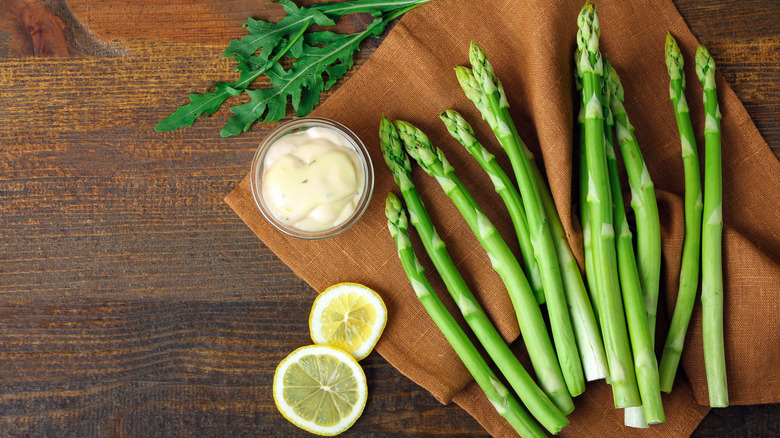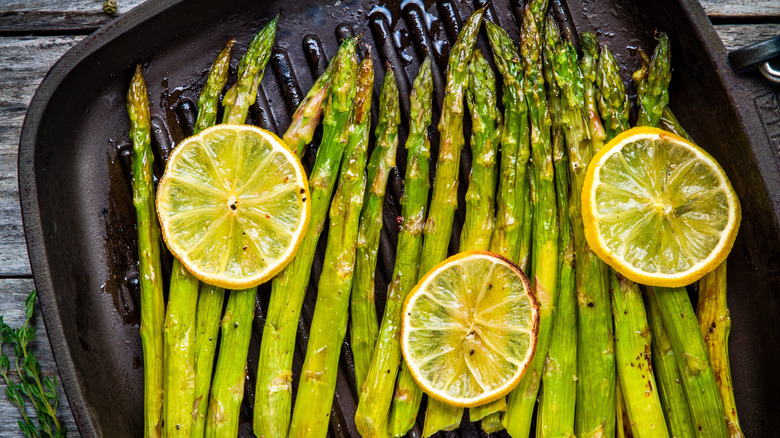For The Best Roasting Results, Opt For Thick Asparagus
When it comes to asparagus, many people opt for the thin, delicate spears, thinking they will be more tender and flavorful. However, thick asparagus shouldn't be disregarded as a subpar option. In fact, this size of asparagus has a unique and delicious flavor all on its own. One of the reasons people shy away from the larger version is because they think it will be tough and woody, but that isn't always the case.
While it's true that the base of the spear can be more fibrous, this can be easily remedied by peeling the lower third of the asparagus with a vegetable peeler. This will remove the tougher outer layer and reveal the tender and flavorful interior of the spear. Best of all, peeling the asparagus will prevent you from losing more of the vegetable than is necessary. But the primary advantage of choosing thick asparagus is that it can withstand high-heat cooking methods that thin versions cannot.
Thick asparagus can withstand the heat
Because thick asparagus can withstand the heat of a hot pan or grill, it will not turn too soft or mushy as it cooks. Thin varieties can quickly become overcooked and mushy when exposed to high heat, but bigger spears can hold their shape and texture, making them ideal for grilling or sautéing. The larger version also has a more robust flavor that pairs well with bold seasonings and marinades.
If you are still worried about the thicker asparagus being too tough, you can pour a little olive oil over them before cooking. This will help to soften and break down some of the strong fibers in the spear, just like it does with kale. So, the next time you're at the grocery store, don't automatically skip over the bunches of asparagus that have thicker spears. Instead, pick some up and give these techniques a try and see how they hold up. You just might find yourself swapping them in for many of your favorite asparagus recipes.

